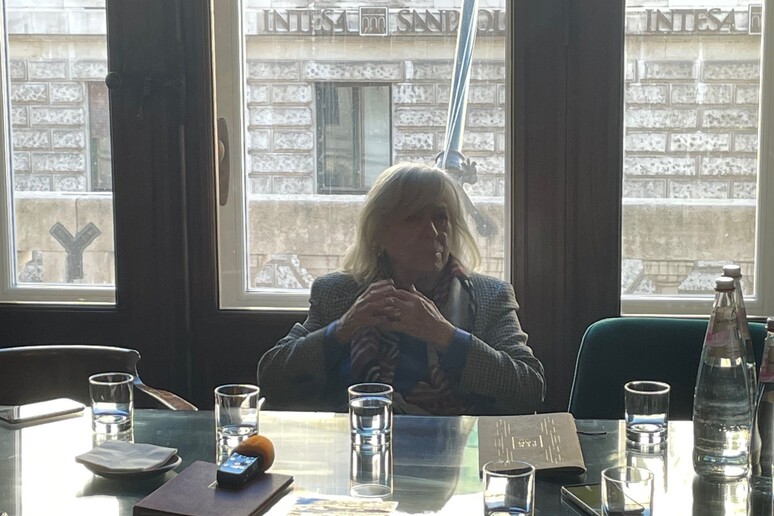(by Alice Fumis)
"I am not Italian. All I can say
is that I am a little disappointed for all these women who tried
to emancipate themselves, to be free, and they elect Meloni,
whom I don't think is an emancipated woman." German director,
Margarethe von Trotta, is in Trieste to present her latest film
"Ingeborg Bachmann - Journey Into the Desert," starring Vicky
Krieps and Ronald Zehrfeld, dedicated to the Austrian poet and
writer, which will soon be distributed in Italy by Movies
Inspired. In a press conference, she answers questions about her
latest work and traces her career, telling a 360-degree story
focusing on women and women's emancipation, including in Italy.
She begins with the 1970s and the "responsibility" she felt
she had, at the beginning of her career as a director, towards
women, who at the time "did not have so many opportunities to
speak out": "I made my first film in '77, there were not so many
German women directors." She then addresses the issue of
gender-based violence: "Women often do not realize that
psychological violence is stronger than physical violence."
The occasion for focusing on her life and career is the
Trieste film festival, notably the Wild Rose section, which is
dedicated this year to female filmmakers from Germany. Von
Trotta says that in her works, she "chose to talk about German
women" close to her background and confesses that after winning
the Golden Lion in Venice in 1981 with "Anni di Piombo," "an
Italian production asked me to make a film about Evita Peron,
but how could I since she belongs to a different world from
mine?"
Von Trotta talks about the beginnings, that is, when "I was
not making expensive films," and when a "very cohesive and
supportive group" had formed among German filmmakers, with "Wim
Wenders offering to pay for my next film in 35 millimeters" as
long as he did not make them in 16. The director then describes
her seven years in Rome, a city with which she is "totally in
love." "Then," she explains, "Berlusconi came to power: I had an
Italian friend who did not want to stay in Italy, I had a house
in Paris, and we went to live there, but I was sorry to leave
Rome."
She has no doubts about considering Italy's postwar cinema as
"the most beautiful and strongest in the world," and, dwelling
on Germany's, she observes, "In the 1970s, it had the world's
attention, but then it shifted to other countries. We had our
chance."
She underlines, "Either you are good, or you are not good:
you take part because you are good, not because you agree to
sleep with someone," "This aspect had to change, but maybe not
totally."
ALL RIGHTS RESERVED © Copyright ANSA





